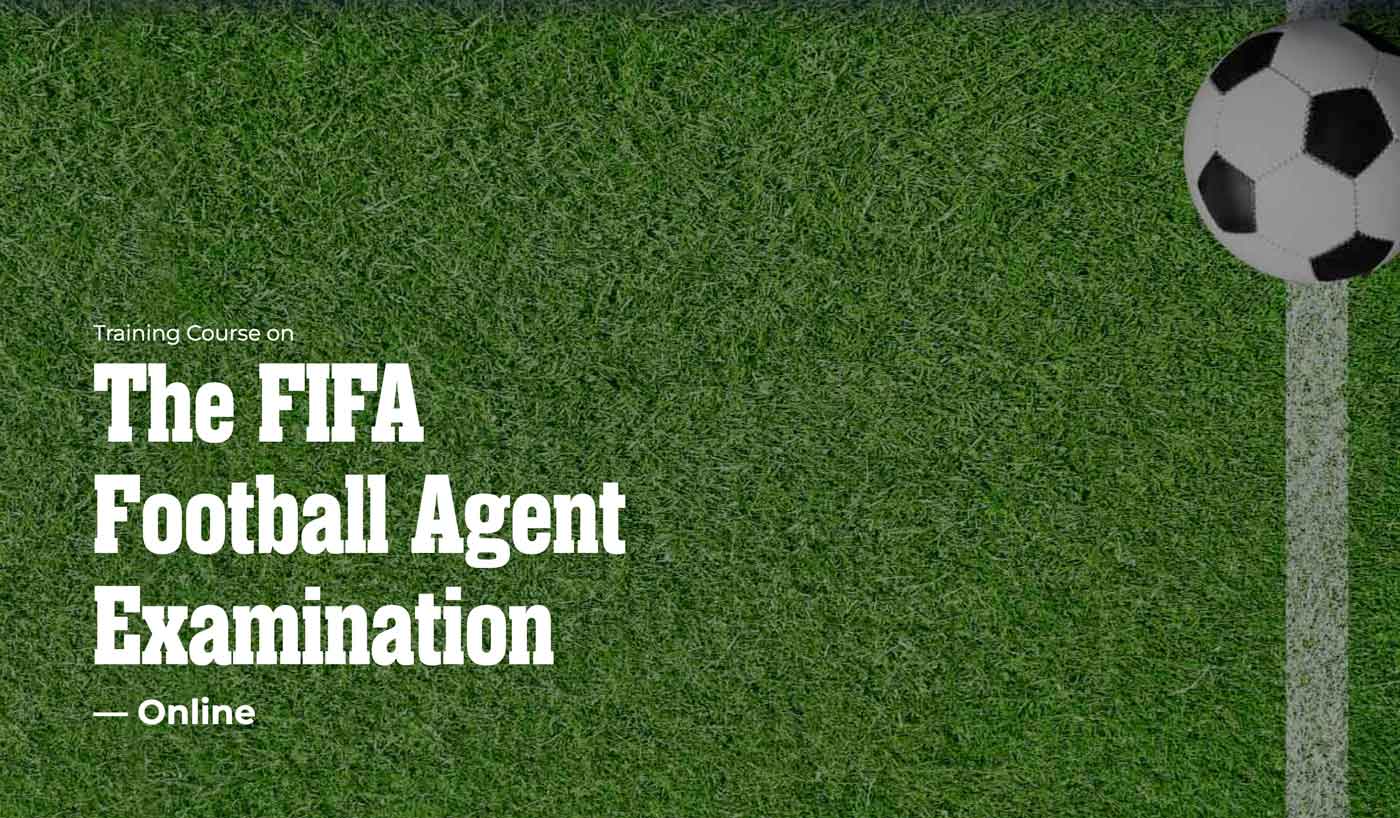
After having taken the exam to transfer my experience to our new Training Course on the FIFA Agent Examination, and successfully passing it, these are my reflections on the procedure, the exam itself, and its challenging nature
On April 19th, 2023, I had the opportunity to take the first-ever FIFA football agent examination, which was reintroduced under the new FIFA Football Agent Regulations that came into effect in January 2023. I am a sports law specialist and academic director of educational programmes for sports agents at Loughborough University in the UK that we offer in collaboration with Johan Cruyff Institute. So, I took the exam with the goal of gaining experience that would help in the development of our new Training Course on the FIFA Agent Examination. My view is that without the exam experience, I do not think one can effectively educate about this.
On the day of the exam, I arrived at the exam venue in London alongside over 800 candidates. After the registration process, which included identity verification and receiving Wi-Fi details and my desk number, I set up my laptop and logged into the FIFA agent platform. Although there was a lengthy delay to the exam start (about 45 minutes), I was able to access the exam on the FIFA agent platform once it was ready. I found that the platform had the same look and functionalities as the mock exam which was available to all candidates in the FIFA agent platform prior to the real exam. Therefore, it is important for anyone to complete the mock exam to test not only their understanding of the FIFA regulations but also to familiarise themselves with the platform. I also recommend using the online version of the study materials instead of a printed hard copy, as the unofficial translator, also available in the agent platform alongside the FIFA study materials, can be a useful tool for those who may struggle with any of the 3 official languages of the exam (English, Spanish, French). I did not use the translator during the exam but tested it in the mock exam and it worked well.
It is important for anyone to complete the mock exam to test not only their understanding of the FIFA regulations but also to familiarise themselves with the platform
When I started working on the questions, I quickly realized that they were difficult. I discussed this with others after the exam who also found the exam challenging. It seems to me that the mock exam was easier than the real exam. The reason for the difficulty, in my opinion, is the requirement of a solid understanding of the FIFA regulations to enable regulatory reasoning to find the correct answers to the questions. Because the questions were very specific and needed precise knowledge of FIFA regulations, not only in their literal meaning but also in their interpretation and practical application. Without a comprehensive regulatory knowledge, in my view, it would be almost impossible to pass this exam. Therefore, I expect a low pass rate of the April examination.
The mock exam was easier than the real exam; questions were very specific and needed precise knowledge of FIFA regulations, not only in their literal meaning but also in their interpretation and practical application
Prior to the exam, I had observed that there was a tendency to think that having an open-book exam would be easier. Yes, accessing the FIFA regulations during the exam would certainly be helpful, yet without knowing the regulations, having an open-book exam could be detrimental due to the types of questions asked. Because a lot of time can be wasted in navigating the regulatory text if you do not know how and where to find right regulatory provisions in the FIFA study materials document.
I do not think having the regulations in front of you is necessarily beneficial unless one has a good regulatory knowledge to navigate the large volume of regulatory text well under the time constraint of the exam
For instance, of the questions I received, only two directly asked me to find specific provisions of FIFA regulations, which I characterise as ‘direct rule questions’. These questions can be handled with the help of the FIFA study materials, but even then, one must know how to find the rule the question is asking. On the other hand, about half of my questions (8-9 questions) were ‘scenario-based questions’, which are particularly challenging because I had to understand and interpret the facts, know the applicable regulatory provisions, and then apply them to the facts to work out the right answers. Furthermore, over 50% of my questions (11-12 questions) had multiple right choices, requiring me to select “one or more choices” as the right answer, making the exam even more complex and difficult.
Over 50% of my questions (11-12 questions) had multiple right choices, requiring me to select “one or more choices” as the right answer, making the exam even more complex and difficult
Based on my experience, I recommend the following tips for those taking the exam in September 2023:
- Start preparing early and study the FIFA regulations regularly to absorb them gradually, as the exam covers a lot of material. Do not leave your exam preparation too late.
- Focus on developing and improving your regulatory knowledge, as there is no shortcut to this. The exam is there to test your regulatory understanding, which is essential to pass it.
- Develop a strategy around how to navigate the FIFA study material during the exam in case you need to check, but do not heavily rely on having the regulations in front of you. As you study the regulations, you will naturally learn about where to find things in the FIFA study materials document.

Serhat is a prominent sport law specialist with an expertise in regulation of football. He successfully passed the former FIFA agent examination in April 2008 in his first attempt.






